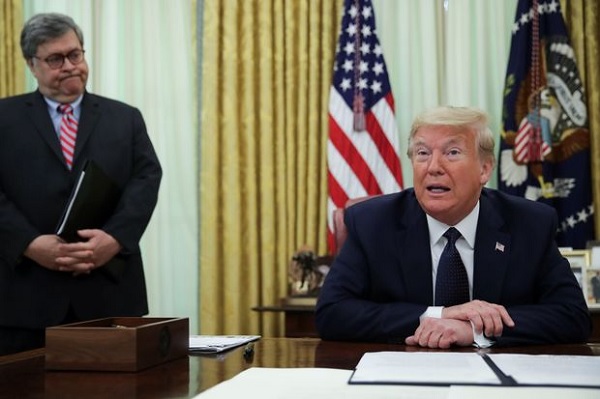
Attorney Scott Pilutik wrestles with the news of the day, from a lawyerly perspective…
Trump’s Executive Order [EO] is mostly what I predicted, but longer and more deranged and paranoid, at least in the preamble which reads a bit like a copy-edited version of his Twitter account.
The meat of it is essentially an attack on the Communications Decency Act § 230. It instructs Wilbur Ross and William Barr to petition the FCC to “clarify” § 230 in accordance with Trump’s understanding.
Trump is basically asking the FCC (and looking forward, the courts) to begin treating social media companies like public utilities with respect to content, so that they’re left liable for any “editorial” decisions they make.
Now that is a plausible, if narrow, reading of the CDA and somewhat in keeping with the time it was passed, when there was a clear division between “service providers” and “content creators.” Congress didn’t want to stifle the Internet’s growth so it indemnified the creators of its machinery.
Since then, the Internet’s machinery gradually became sentient. Algorithms learn from us, make associations, and determine what we see — Facebook is an “editor,” though not one we traditionally identify as such.
Mark Zuckerberg the other day came to his friend Trump’s defense in Trump’s Twitter fight, perhaps forgetting that Facebook also performs a fact-checking “editorial” function. But under Trump’s redefined CDA 230, Facebook would have lost a 2019 case before the Second Circuit [Force v. Facebook] that it won when the court found that DCA 230’s safe harbor extended to algorithms. (The case was brought by US victims of Hamas, claiming that Facebook provided material support to terrorists.)
I imagine Zuckerberg will decline to take Trump’s side so quickly when his lawyers read Trump’s EO, which explicitly calls out algorithms as editorial content.
Regardless of where you stand on CDA 230 and how far the safe harbor should extend to social media companies (there are legitimate arguments running both ways, and the debate predates Trump’s presidency), Trump is attempting to change existing law by bypassing Congress and overruling the courts.
But Trump’s EO also goes much farther than advocating for a narrower reading of the CDA, because what prompted this EO was Trump being upset with Twitter flagging his tweet as false. Because think about it — even if Trump gets his wish and Twitter’s safe harbor disappears when it fact-checks its users content, there’s no plausible cause of action against Twitter for fact-checking content, even if loses its safe harbor against such suits.
Trump makes a lot of noise in the EO about social media’s impact on free speech, but Twitter doesn’t owe anyone free speech because it’s a private actor. There is no liability for labeling someone’s content as false. If enough users don’t like Twitter being an opinionated curator of sorts, they’ll leave.
The grand irony, which I already pointed out in anticipation of this EO, is that Trump, in supposed defense of free speech (fittingly, his own), flips the first amendment on its head by proposing that the FCC promulgate a regulation that would stifle the speech of private actors for engaging in political discussion that Trump just happens to dislike.
I doubt this EO would survive strict scrutiny, though I’m not clear on what there is to sue for in here, so maybe there won’t be a lawsuit until the FCC takes action in accordance with the EO.






